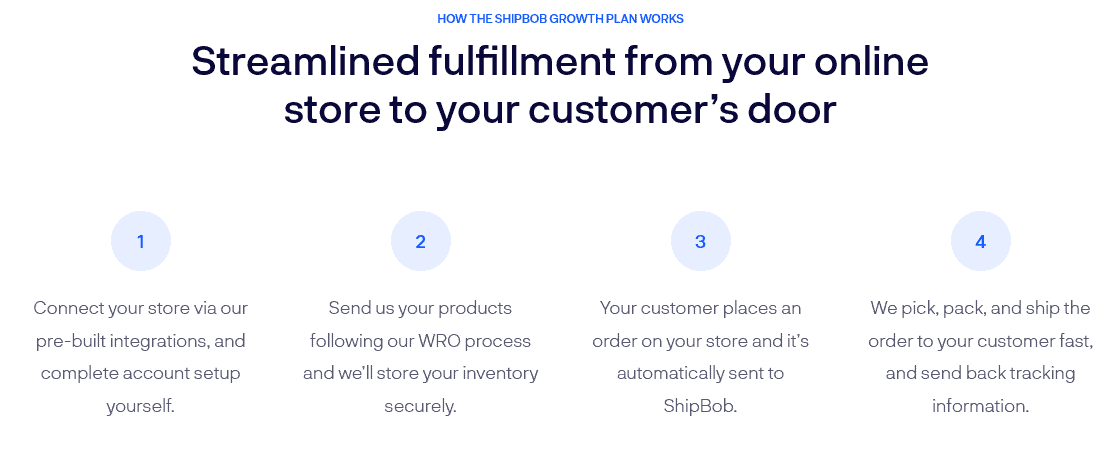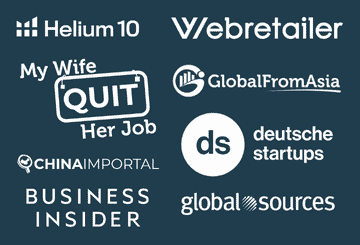Ever wondered how top Shopify stores manage to deliver orders swiftly and efficiently?
A significant part of their success can be attributed to third-party logistics (3PL) services.
Shopify, a leading e-commerce platform, empowers businesses with digital storefronts. But behind the scenes, 3PL services play a pivotal role, ensuring that products reach customers in a timely and cost-effective manner.
A Growing Trend in E-commerce:
The global 3PL market is on a meteoric rise. To put it into perspective, the market is projected to soar to a staggering USD 1,993.72 billion by 2028

Such growth underscores the increasing reliance of businesses on these services.
Why the Sudden Surge?
The dynamics of e-commerce are ever-evolving. For Shopify store owners, managing logistics in-house can be a daunting task.
Enter 3PL services.
They offer tailored solutions, ensuring products reach customers promptly and in pristine condition.
And when I look at the trajectory of 3PLs, they’re only going in one direction:
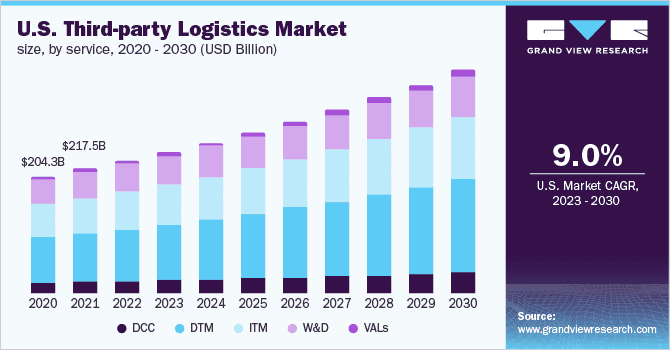
The Fortune 500 Connection:
Here’s another compelling statistic: a whopping 90% of Fortune 500 companies utilize 3PL services
This fact alone speaks volumes about the trust and value businesses place on third-party logistics.
In this guide, I’ll be delving into the top 7 3PL services tailor-made for Shopify stores.
Each has its unique offerings, ensuring there’s a perfect fit for every business need.
Let’s dive in.
Best 3PL Shopify Services
In the bustling world of e-commerce, the right logistics partner can make all the difference. Shopify store owners have a plethora of choices, but a few 3PL services truly stand out.
1. Best Overall: DHL

Features
- Extensive global presence with 1,400 warehouses across 22 countries.
- Massive dedicated team of 380,000 professionals.
- Comprehensive order fulfillment services.
- Precise picking, packing, and inventory management.
- Efficient omnichannel integration.
- Expertise in warehousing, kitting, and assembly.
- Direct integration with Shopify for streamlined operations.
Shipping times
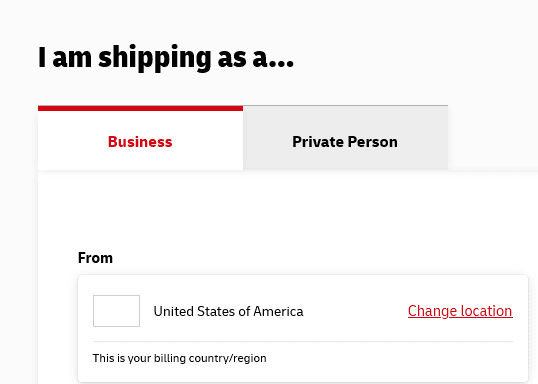
- Domestic: DHL’s domestic delivery services within the US span from 2-8 business days. The Expedited Max service typically delivers in 2-3 business days, while the Ground service usually takes 3-8 business days.
- International: DHL’s prowess in international shipping is unparalleled. Services like DHL Express 9:00 guarantee delivery by 9:00 AM the next possible day, while DHL Express International targets end-of-day delivery the following day.
Pricing

DHL’s pricing is influenced by various factors, including package weight, dimensions, and destination. For a detailed estimate, DHL’s official rate calculator is invaluable.
Pros
- Global Network: DHL’s extensive network ensures smooth international shipping. Their global presence is a testament to their reliability.
- Shopify Integration: DHL’s services are optimized for e-commerce platforms – especially Shopify. This compatibility ensures Shopify store owners enjoy a streamlined shipping process.
Cons
- Pricing: While DHL offers top-tier services, their rates might be on the higher side for certain shipments. Yet, many believe the quality of service justifies the cost.
- Customs Delays: Despite DHL’s expertise, international shipments can occasionally face customs-related delays. It’s a challenge in the logistics industry.
What makes them stand out from the rest:
DHL’s extensive global network is the ace up their logistics sleeve.
Additionally, their dedication to enhancing logistics operations is further highlighted by their exploration of indoor mobile robots, which are tipped as an emerging innovation by DHL’s Logistics Trend Radar.
These robots, with real-time path planning, are set to revolutionize the fulfillment stage.
It’s this kind of forward thinking that adds to my reasons to make them my top choice for the best overall 3PL service for Shopify.
Their continuous efforts to stay ahead in the logistics industry, combined with their adaptability and customer-centric approach, set them apart as a leader in the field.
2. Shopify Fulfillment Network

As our runner-up choice, SFN offers a blend of efficiency, affordability, and reliability.
Features:
- Application Process: Shopify evaluates stores upon application, primarily accepting those fulfilling from the US and not listing prohibited items. Successful applicants can explore the SFN app at their own pace, with onboarding taking as little as two weeks.
- Inventory Distribution: Shopify uses e-commerce data to strategically move products closer to customers, ensuring faster deliveries.
Merchants send inventory to a single fulfillment center, and Shopify distributes it further.
Shipping Times:

With fulfillment centers across the US, Shopify aims to deliver 98% of domestic orders on time, typically within three days or less.
Pricing:
Shopify’s pricing is transparent, covering inventory management and delivery with no up-front costs.
While there are no monthly minimums, businesses should achieve a certain sales volume to ensure the service aligns with their needs. For detailed pricing, Shopify provides a cost calculator.
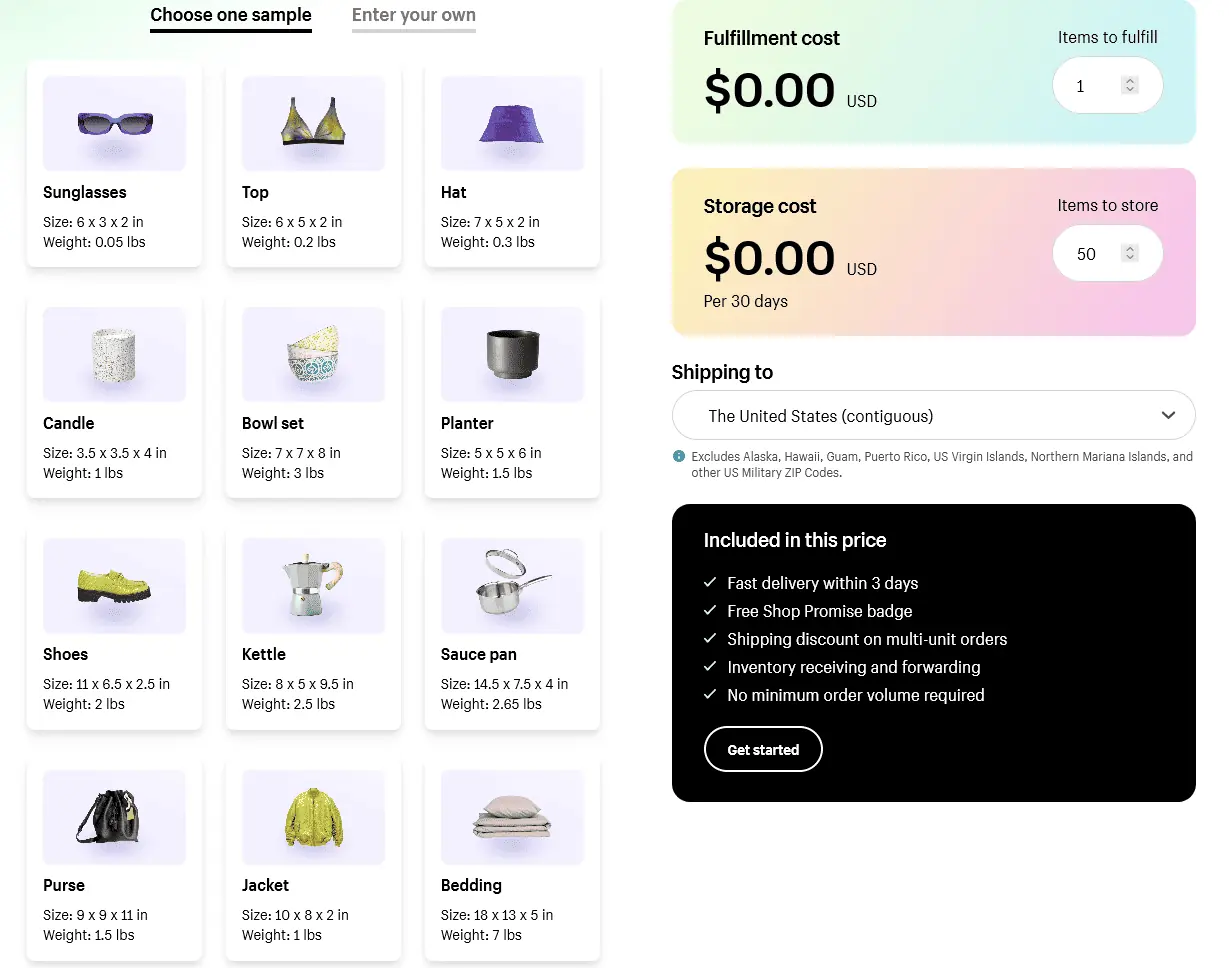
Pros:
- Carrier Diversity: Shopify collaborates with various regional and national mail carriers, including USPS, DHL, UPS, and Canada Post, ensuring flexibility and reliability in deliveries.
- Sales Channel Compatibility: SFN is compatible with numerous sales channels integrated with Shopify, such as Facebook, Google, Instagram, TikTok, and Walmart Marketplace.
Cons:
Not all stores are accepted into the SFN; there are specific criteria, including not listing prohibited items.
What makes them stand out from the rest:
Shopify Fulfillment offers a unique feature called the “Shop Promise” badge.
This badge signifies fast and reliable delivery, appearing beside delivery dates for eligible deliveries estimated to be delivered domestically in the United States within five or fewer calendar days.
Not only does the badge enhance the customer’s trust, but it also prominently displays on product pages, throughout the checkout experience, and on the Shop app.
Additionally, the Shop Promise can highlight incentives like free shipping when applicable, further enhancing the customer’s shopping experience.
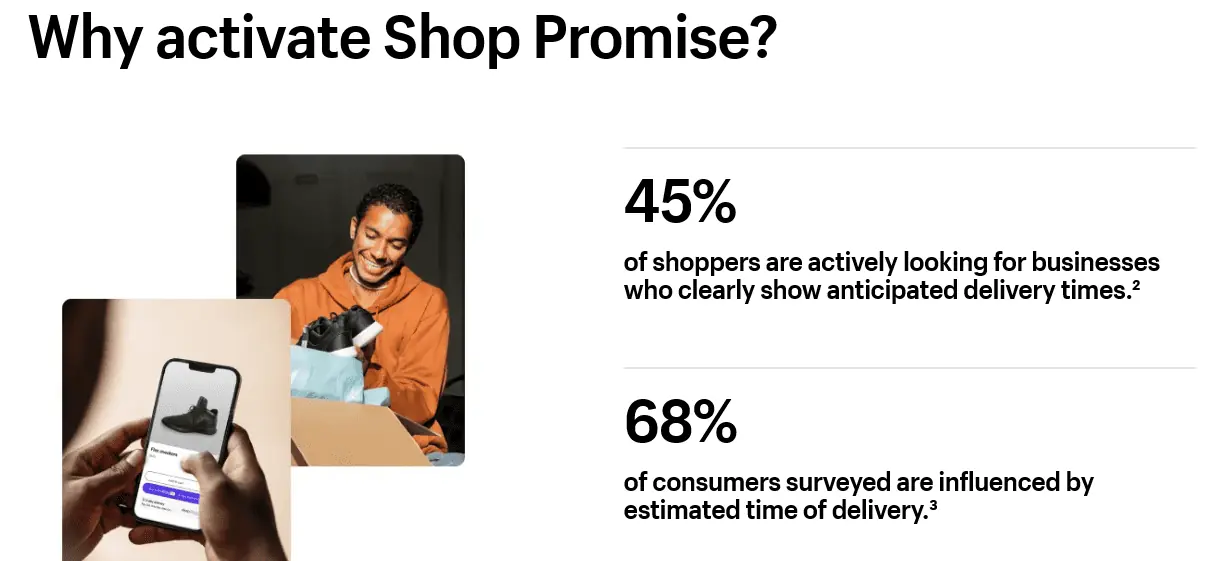
3. ShipBob

ShipBob, a prominent third-party logistics provider, has been making waves with its specialized services ready made for online retailers
But is it the right fit for you for Shopify? .
Features:
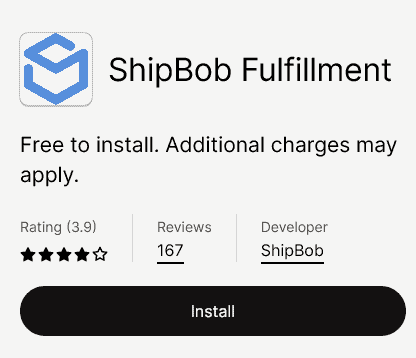
- Shopify Integration: ShipBob’s direct integration with Shopify ensures real-time order syncing and inventory management. This connection allows for automated order imports from Shopify stores.
- Sales Channel Compatibility: Beyond just Shopify, ShipBob is compatible with a myriad of sales channels, including but not limited to Facebook, Instagram, and Walmart Marketplace.
Shipping Times:
- ShipBob’s fulfillment centers are strategically located in major US cities, including California, Chicago, Dallas, and Pennsylvania.
- Distributing inventory across these centers reduces shipping distances and costs, as orders are shipped from the location closest to the customer.
A significant offering is their 2-Day Express Shipping Program within the continental US, a service that has garnered favor among Shopify stores.
Additionally:
- ShipBob’s platform provides real-time status updates for each order.
- After shipping, confirmation is automatically sent back to the Shopify store, ensuring customers receive tracking information and stay informed throughout the delivery process.
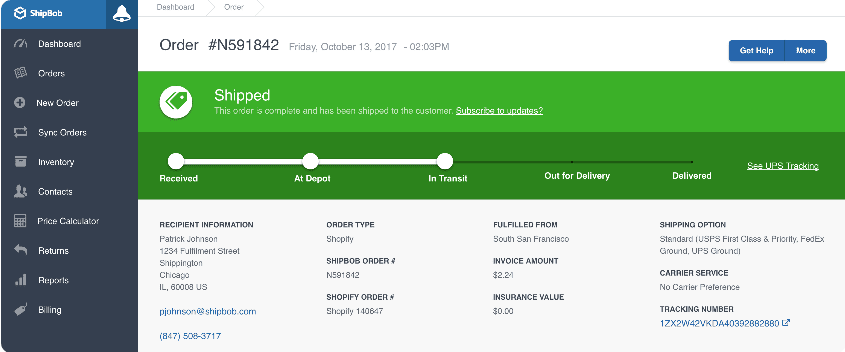
Pricing:
ShipBob’s pricing is determined by factors like package weight, dimensions, and destination. For specifics, ShipBob recommends seeking a personalized quote.
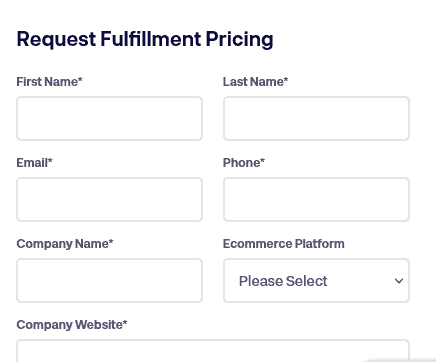
Pros:
- Broad Network: ShipBob’s extensive fulfillment infrastructure ensures proximity to customers, aiming for expedited deliveries.
- Carrier Diversity: Collaborations with carriers like USPS, DHL, and UPS offer flexibility and competitive rates.
Cons:
- Application Prerequisite: To avail of ShipBob’s services, businesses must apply, and acceptance hinges on various criteria, including product type and fulfillment needs.
- Mixed Reviews: While many users praise ShipBob’s services, some reviews highlight concerns about the company.
What Makes Them Stand Out:
Their Growth Plan also makes them a strong choice for small and new e-commerce businesses.
However, potential ShipBob users should consider the mixed reviews when evaluating it as a fit for their business needs.
Their 3.9 score on the Shopify app store reflects that:
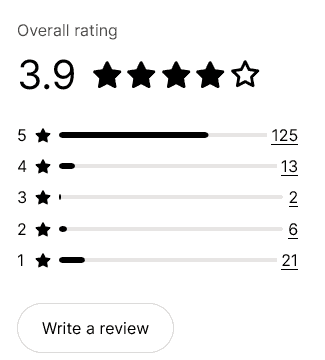
4. Red Stag Fulfillment

Next on our roundup is Red Stag Fulfillment, a fulfillment service that has carved a niche for itself in the e-commerce logistics sector.
Let’s look at what makes them a top choice for many Shopify businesses, especially those dealing with specific product types.

Features:
- Order Fulfillment Process: Once an order is placed via an e-commerce store, Red Stag takes charge. They pick the product from their warehouse, package it, and ensure it’s handed over to the shipping provider.
They even take videos and pictures of all products they receive, ensuring transparency regarding the condition of inventory or returned items.I thought this in particular was a smart addition.
- Integration with E-commerce Platforms: Red Stag integrates with major e-commerce platforms like Shopify, Amazon, Magento, and WooCommerce. This ensures that order information is directly routed to them for swift processing.
- Inventory Management: Red Stag provides a digital dashboard where businesses can track sales data, monitor damaged products, and oversee customer returns. They also offer inventory planning services, ensuring businesses always have an accurate picture of their stock levels.
Shipping Times:
- Domestic Deliveries: With two warehouses in the US, Red Stag offers same-day order fulfillment with cutoffs at 3 pm and 5 pm Eastern time.
- International Deliveries: While primarily US-focused, Red Stag does cater to international shipping, though the exact delivery times can vary based on the destination.
Pricing:
Red Stag operates on a month-to-month charging basis, offering flexibility without long-term commitments.
While they don’t provide upfront pricing, they have various charges like $13.25 per pallet for receiving and storage costs ranging from $2 per bin to $15 per pallet per month.
They also offer a 30-day free trial for businesses to test their services.
Pros:
- Specialization in Bulky Items: Red Stag is renowned for its expertise in handling and shipping items like furniture, large electronics, and other bulky or high-value products.
- Accuracy Guarantee: Boasting a high order fulfillment accuracy of 99.98%, they promise to pay $50 for any mistake they make in packing or shipping.
- Fast Shipping: They offer same-day order fulfillment with cutoffs at 3 pm and 5 pm Eastern time, ensuring products reach customers promptly.
- Customer Service: Every client gets a dedicated customer service agent, ensuring quick and efficient responses to queries.
Cons:
- Lack of Upfront Pricing: Businesses need to contact Red Stag directly for a detailed pricing structure, which might not appeal to everyone.
- Limited Warehouses: With only two warehouses in the US, same-day delivery might not be feasible for all locations.
What Makes Them Stand Out:
Red Stag Fulfillment distinguishes itself by specializing in the handling and shipping of items that many other providers might avoid, such as oversized, heavy, high-value, or fragile items.
Their focus on these unique product categories ensures that businesses dealing with such products have a reliable partner.
In a nutshell:
Red Stag Fulfillment is an excellent choice for businesses that deal with unique product categories, especially those that are bulky or high-value.
5. FedEx Logistics
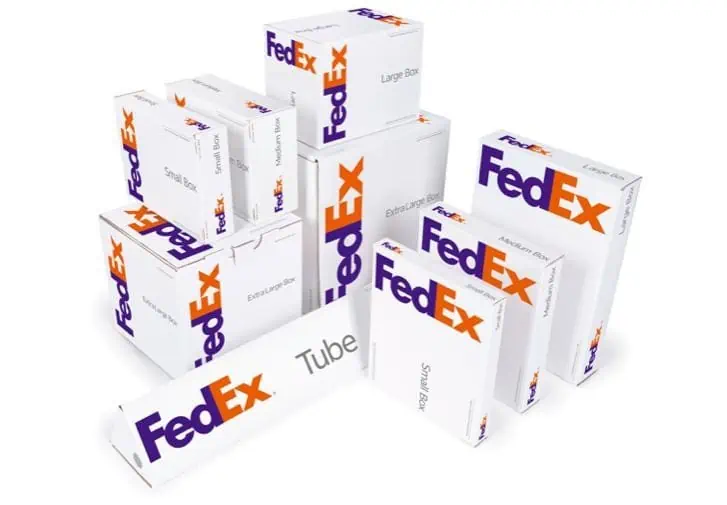
Next is FedEx Logistics, a renowned name in the shipping industry, now making significant strides in the e-commerce fulfillment sector.
Features:
- Integrated Solutions: FedEx Logistics provides an all-in-one solution, from supply chain services to customs brokerage.
This was only enhanced further when they announced “Order to Shipment Label in One Click” in June 2023 for their FedEx Europe customers:

- Data Management: They prioritize the secure handling of insurance and customer data, ensuring businesses can operate without data-related concerns.
- Branded Packaging: FedEx offers custom boxes that can be branded, enhancing the customer’s unboxing experience and promoting brand recognition.
Shipping Times:
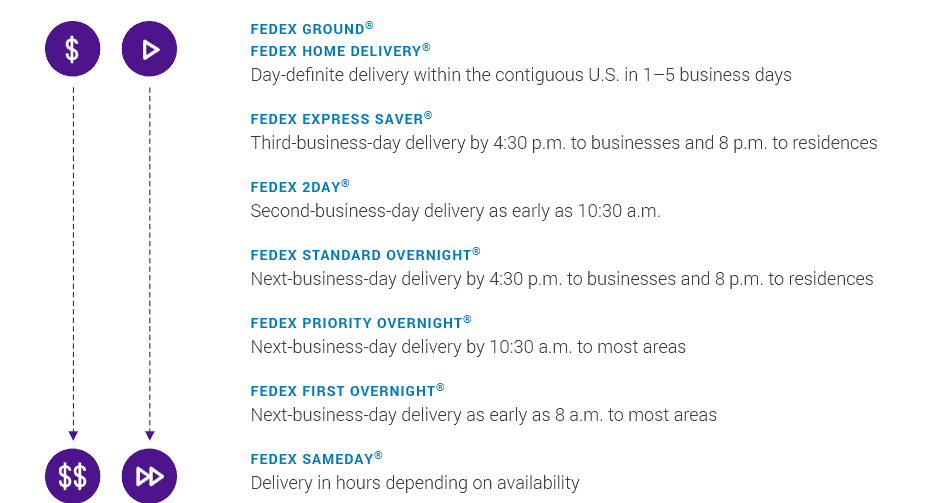
- Domestic Package Shipping: FedEx provides a variety of domestic shipping options, ranging from day-definite delivery within the U.S. in 1-5 business days to next-business-day delivery as early as 8 a.m.
- International Package Shipping: For global merchants, FedEx offers services like day-definite delivery to Canada in 1-5 business days and time-definite delivery to over 130 countries in 1-3 business days.
- Freight Shipping: For heavier shipments, FedEx offers both domestic and international freight shipping options. Domestic options include delivery typically in 3-6 business days, while international options cover deliveries to over 130 countries.
Pricing:
FedEx offers competitive pricing structures, with potential discounts for businesses. For a detailed understanding of their pricing, merchants can use the online calculator provided by FedEx.
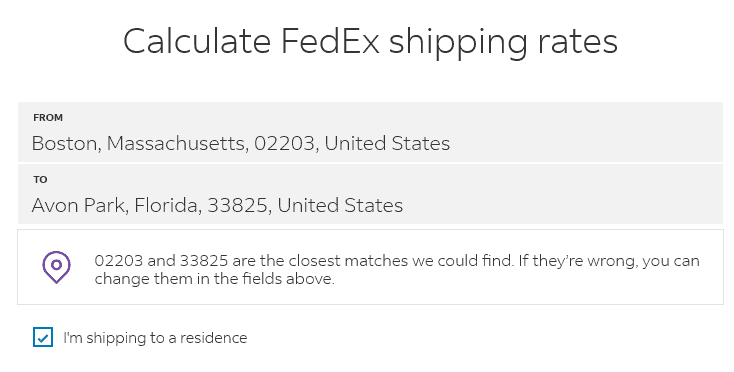
Pros:
- Established Reputation: Being in the industry since 1971, FedEx’s brand is synonymous with trust and reliability.
- Global Reach: Their extensive network ensures timely deliveries across various parts of the world.
Cons:
- Inconsistent Performance: As per some user reviews, while the sales and account teams are supportive, the operations team has had performance issues.
- Tracking Concerns: Some users have mentioned challenges with the tracking system, citing difficulties in getting accurate updates on expected ETAs without reaching out to customer service.
I’m kinda nitpicking here though, because overall their reviews are great:

What Makes Them Stand Out:
FedEx Logistics has been in the game for over two decades, and their parent company has been around since 1971 – so their longevity speaks volumes.
When your Shopify customers see a business using FedEx, there’s an inherent trust immediately established – which usually means a higher conversion rate for you.
6. ShipMonk
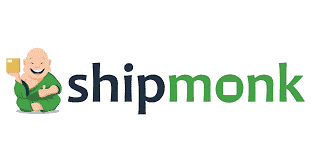
This one caught my eye because they focus solely on 3PL for eCommerce fulfillment – whereas most in this roundup have fulfillment as one of many services.
Does their targeted approach work?
Let’s have a look.
Features
ShipMonk offers a comprehensive suite of services targeted to e-commerce needs:
- Pick & Pack: Automated order fulfillment ensures accurate and efficient picking and packing. With the capacity to fulfill up to 10,000 orders daily, ShipMonk charges only for the services used.
- Cost-Effective & Flexible Shipping: Leveraging their extensive network, ShipMonk secures discounted shipping rates, passing the savings directly to merchants.
- Powerful Software: Beyond traditional logistics, ShipMonk’s software offers agile and intuitive order, inventory, and warehouse management technology. This includes frictionless API integrations and automated mapping and bundling capabilities.
- Intelligent Storage & Third-Party Warehousing: Optimized storage design reduces fees, and daily charging ensures merchants only pay for what they use. State-of-the-art security systems protect inventory.
- Returns Management: ShipMonk’s focus on 3PL ensures hassle-free returns and exchanges, including product testing, assessment, and sorting.
Shipping Times
ShipMonk provides various shipping options, including:
- Domestic: 1-3 business days for standard shipping.
- International: 7-21 business days, depending on the destination and service chosen.
Pricing
ShipMonk operates on a flexible pricing model that caters to Shopify businesses of varying sizes.
For detailed pricing structures, they offer a pricing calculator on their website, allowing merchants to get estimates based on their specific needs.
Unlike other pricing pages in this roundup, it looks like ShipMonk has made more of an effort to give the user a rough idea of what to expect.
They achieved this with a nifty interactive slider:

In this example I chose about 5,000 orders for a growing Shopify store, with the Order Pick Price and other metrics changing if I increased or decreased the slider.
ShipMonk definitely stands out here by not hitting their potential customers with just a “Contact us for a quote” pricing page.
Pros
- Efficient Integration: Merchants appreciate the smooth integration with platforms like Shopify.
- Exceptional Customer Service: Reviews also highlight the responsiveness and professionalism of ShipMonk’s team.
- Comprehensive Onboarding: New users are guided through a detailed onboarding process, ensuring they’re well-equipped to utilize ShipMonk’s services.
Cons
While many reviews are positive, some users found the onboarding process challenging, especially if they were not tech-savvy. However, the support team was always available to assist.
Overall, the reviews on their Shopify app page are from happy customers:
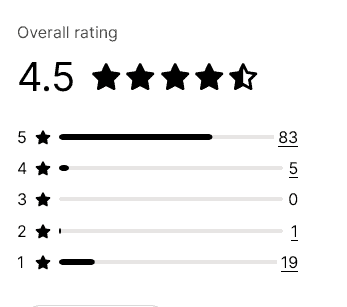
What Makes Them Stand Out
ShipMonk’s strapline of “Stress Less, Grow More” is evident in their approach.
Their commitment to customer happiness is exemplified by their dedicated account managers, known as Happiness Engineers, trained to address any concerns.
With a blend of advanced technology, dedicated support, and efficient services, they ensure Shopify businesses can focus on growth while they handle the complexities of fulfillment.
7. ShipNetwork

As we wrap up our exploration of top 3PL services for Shopify merchants, ShipNetwork stands out as a formidable contender.
With over 20 years in the logistics industry and a 2022 strategic acquisition of Rakuten Super Logistics (RSL), they’ve solidified their position in the market.
Features
- 3PL Services: Beyond standard order fulfillment, they handle returns, subscription boxes, and kitting.
- Cloud-Based Inventory Management: Offers real-time oversight of orders and stock levels.
- Shopify Integrations: Direct integrations with Shopify, ensuring efficient order processing and shipping.
Shipping Times
Leveraging their vast network of fulfillment centers, ShipNetwork promises swift domestic shipping. Their centers, strategically located across the US, aim to ensure most regions receive deliveries within a 1-2 day window.
Pricing
Like other companies I researched in this roundup, ShipNetwork’s pricing approach is built on customization and a bespoke quote.
They understand that every Shopify store has unique needs, hence they offer custom quotes based on factors like order volume, SKU mix, average product weight, and more.
Still though, it would be nice if more companies took ShipMonk’s approach and gave customers something to gauge their costs.
Pros
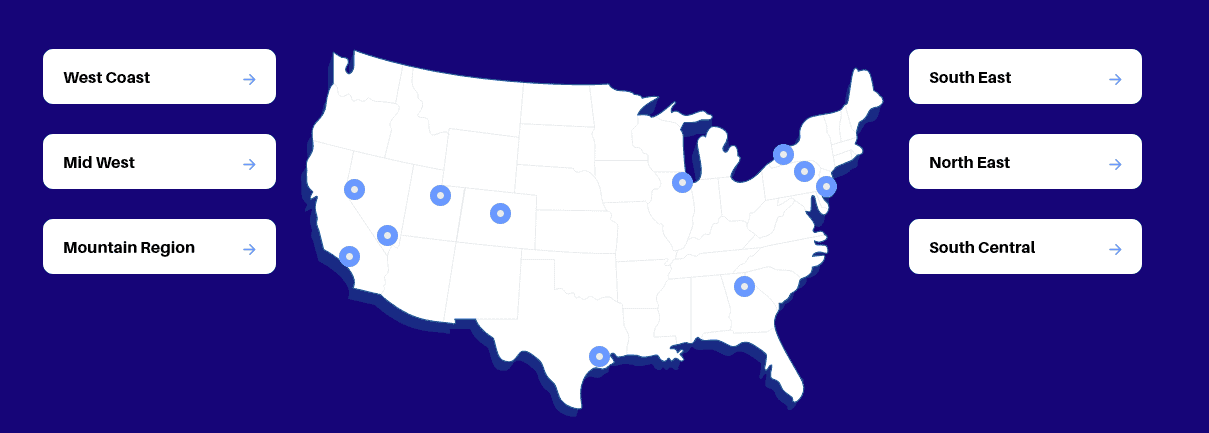
- Strategic Expansion: Their acquisition of RSL has broadened their operational reach.
- Quick Order Processing: Orders from Shopify stores are automatically synced with the nearest ShipNetwork warehouse.
- Comprehensive 3PL Offerings: They offer services like kitting, which is beneficial for bundling products.
- Efficient Handling of Returns: They not only manage returns but also restock items efficiently.
- Broad Integration Scope: Apart from Shopify, they integrate with platforms like WooCommerce and Amazon.
Cons
They primarily cater to businesses with substantial monthly orders, which might not be ideal for smaller Shopify stores.
4,500 orders seems to be their minimum – although it could be worth reaching out to them if you’re in the neighborhood of those numbers.
What Makes Them Stand Out
Xparcel Optimization: ShipNetwork’s unique algorithm, Xparcel, meticulously selects between national and regional carriers.

This ensures each Shopify package is shipped with the best blend of cost and service efficiency.
Concluding our roundup, ShipNetwork emerges as a robust choice for Shopify merchants. Their blend of decades of experience, strategic growth, and commitment to precision makes them a noteworthy option.
Wrapping Up
The 3PL landscape for Shopify is diverse, with giants like DHL offering global reach and specialized services like ShipMonk focusing solely on e-commerce.
Each brings unique advantages to the table, catering to varied business needs.
For those contemplating a change though, selling your Shopify store can be a lucrative move.
Dive into our comprehensive guide to understand the intricacies of the selling process.
And when you’re set, our Shopify Due Diligence Service stands ready to assist, ensuring a smooth transition.
In the dynamic world of e-commerce, a reliable 3PL service can be the game-changer your Shopify store needs. Make the right choice and watch your business thrive.
FAQ
Can you use outsourced 3PL companies with Shopify?
Yes, Shopify merchants can integrate with third-party logistics (3PL) providers.
These 3PLs offer external services to manage logistics and supply chain functions, enhancing operational efficiency for businesses.
By partnering with a 3PL, Shopify store owners can store inventory in the 3PL’s warehouses. When an order is placed, the 3PL handles shipping directly from their facility, ensuring timely fulfillment.
Choosing the right 3PL is crucial. It should align with your business needs, especially if you aim to scale. A strategic 3PL partnership can help navigate challenges and ensure efficient product delivery to customers.
For a deeper understanding and to ensure compatibility, merchants can refer to Shopify’s official guide on 3PLs.
What are the disadvantages of using a 3PL?
1. Loss of Control: Outsourcing logistics can lead to delivery issues, reflecting on your brand, even if the 3PL is at fault.
2. Tracking Challenges: Managing real-time tracking across multiple couriers can become chaotic.
3. Communication Hurdles: Addressing order issues requires individual communication with each carrier, leading to potential miscommunications.
4. Inconsistent Branding: Varied courier labels can dilute brand recognition.
5. Varied Customer Communications: Different carriers use unique phrasing for order statuses, causing customer confusion.
6. Cost and Distance Concerns: 3PLs might have significant upfront costs and, if located far, can complicate inventory management.
What is the best 3PL provider for a small e-commerce shop?
For small e-commerce shops, ShipBob’s Growth Plan stands out as a top-tier 3PL solution.
This self-service onboarding program is attuned for startups and businesses shipping fewer than 400 orders monthly.
The plan offers full access to ShipBob’s proprietary software, integrations, and analytics tools without any extra costs.
Small merchants can store inventory in ShipBob’s fulfillment centers and benefit from services like picking, packing, shipping, and customization.
While it’s a self-service model, ShipBob ensures merchants aren’t left in the dark. They offer email support, and thrice-weekly open office hours where businesses can discuss challenges and solutions with the Growth Plan team.
This combination of features and support makes ShipBob’s Growth Plan a compelling choice for small and growing e-commerce businesses.
